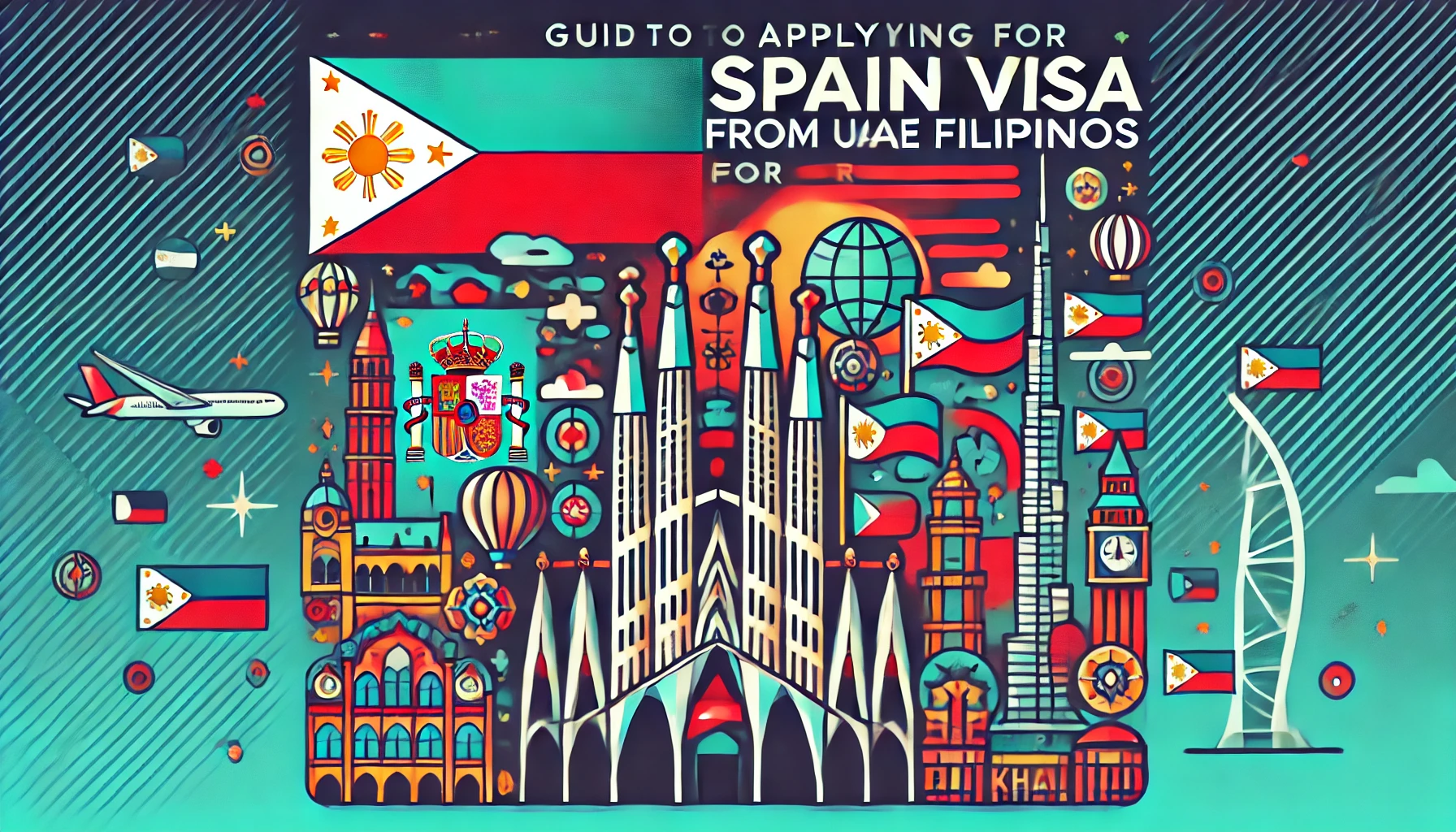Common Questions Filipinos Ask About the Spain Visa Process
As travel restrictions ease and interest in exploring international destinations rises, many Filipinos are looking toward Europe, particularly Spain. From its rich culture and history to stunning landscapes and delectable cuisine, Spain is an alluring destination for Filipinos. However, the visa application process can be daunting, especially for first-time travelers. This blog aims to answer some of the most common questions Filipinos have about obtaining a Spain Visa.
1. What Types of Visas Can Filipinos Apply for to Visit Spain?
Filipinos can apply for several types of visas depending on their travel purpose. The most common types include:
- Tourist Visa (Schengen Visa Type C): For leisure or tourism.
- Student Visa: For individuals intending to study in Spain.
- Business Visa: For business-related travel or meetings.
- Family Reunification Visa: For those visiting family members who are residents in Spain.
Understanding which visa suits your needs is crucial for a successful application.
2. What Are the Requirements for a Spain Visa?
The requirements for a Spain visa vary based on the type of visa being applied for, but general requirements include:
- A completed visa application form.
- A valid passport with at least two blank pages.
- Recent passport-sized photographs.
- Proof of accommodation (hotel bookings or invitation letters).
- Proof of sufficient financial means (bank statements, payslips, etc.).
- Travel insurance covering medical expenses.
For Filipinos, it’s also essential to provide documents that demonstrate ties to the Philippines, such as proof of employment or family connections.
3. How Do I Fill Out the Spain Visa Application Form?
Filling out the visa application form correctly is vital. Here are some tips:
- Ensure all information is accurate and matches your passport.
- Answer all questions thoroughly; leave no blanks unless specified.
- Double-check for spelling mistakes, especially in names and addresses.
It’s advisable to download the form from the official Spain visa website to ensure you have the latest version.
4. What Documents Are Required for the Visa Application?
When applying for a Spain visa, you’ll need the following documents:
- Passport: Must be valid for at least three months beyond your planned departure date from Spain and issued within the last 10 years.
- Financial Documents: Bank statements showing sufficient funds (at least €70 per day for the duration of your stay).
- Travel Itinerary: Flight reservations and proof of accommodation.
- Travel Insurance: Coverage for at least €30,000, including emergency medical expenses.
Make sure all documents are in order and translated into English or Spanish if required.
5. How Much Does It Cost to Apply for a Spain Visa?
The cost of applying for a Spain visa varies depending on the type of visa:
- Short-Stay Visa (Tourist/Business): Approximately €80 for adults and €40 for children aged 6 to 12.
- Student Visa: Fees may vary; check with the consulate or embassy.
Keep in mind that additional service fees may apply when using visa application centers like BLS. It’s important to confirm payment methods accepted at the center.
6. How Long Does the Spain Visa Application Process Take?
The processing time for a Spain visa typically ranges from 15 to 30 days. However, it’s wise to apply at least 1-2 months before your intended travel date to account for any unforeseen delays.
7. What Should I Expect During the Visa Interview?
If required to attend an interview at the BLS Visa Center, here’s what to expect:
- Interview Format: It usually lasts around 10-15 minutes.
- Common Questions: Expect questions about your travel plans, financial stability, and reasons for visiting Spain.
- Tips: Dress professionally, be honest, and maintain a positive demeanor.
Being prepared will help you feel more confident during the interview.
8. What If My Visa Application Is Rejected?
If your application is denied, don’t lose hope. Common reasons for rejection include:
- Incomplete application or missing documents.
- Insufficient financial proof.
- Doubts about the applicant’s intention to return to the Philippines.
If denied, you can request an explanation and consider reapplying after addressing the issues raised.
9. Can I Apply for a Spain Visa If I’m Unemployed?
Yes, unemployed applicants can still apply for a Spain visa. However, it’s crucial to provide alternative documents to prove financial stability, such as:
- Bank statements showing sufficient funds.
- A letter from a relative or friend in Spain who will support your stay.
Demonstrating ties to the Philippines is also essential to assure authorities of your intent to return.
10. How Can I Avoid Common Mistakes in My Visa Application?
To avoid common pitfalls, consider these tips:
- Double-Check Documents: Ensure all documents are complete and accurate.
- Follow Instructions Carefully: Adhere to guidelines provided by the consulate or visa center.
- Stay Informed: Keep up-to-date with any changes in visa requirements.
Taking these precautions will increase your chances of a successful application.
Conclusion
Navigating the Spain visa process can be overwhelming, but being informed is your best ally. By addressing common questions and concerns, we hope to empower Filipinos to approach their visa applications with confidence. If you have any additional questions or experiences to share, feel free to leave a comment below!
Call to Action
Planning a trip to Spain? Don’t hesitate to share this blog with friends and family who are also considering applying for a Spain visa. Happy travels!


